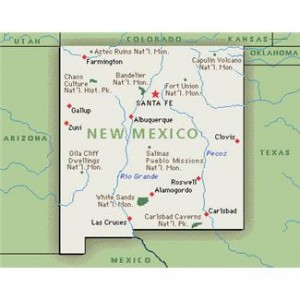10th Circuit: Malicious prosecution exclusion in management liability policy doesn’t include claims for malicious abuse of process
by Christopher Graham and Joseph Kelly
Insurance underwriters take heed of the Tenth Circuit’s decision in Carolina Casualty Ins. Co. v. Nanodetex Corp., et al, Case No. 12-2100 (10th Cir. Aug. 19, 2013). If you intend to exclude a specific tort claim from coverage, you should use the exact name of the tort in effect in the state of policy issuance, rather than simply list a generic common law tort name; otherwise you may have coverage you didn’t want. If you’re an insured and your insurer doesn’t cover a specific tort in your state by name, you may have coverage.
The insureds, Nanodetex and two principals, had a judgment against them in New Mexico for malicious abuse of process. The insureds sought coverage under a management liability policy issued by Carolina Casualty. Carolina denied coverage, citing the following exclusion:
The Insurer shall not be liable to make any payment for Loss in connection with a Claim made against any Insured: …. …for: …. …invasion of privacy, wrongful entry, eviction, false arrest, false imprisonment, malicious prosecution, libel, slander, mental anguish, humiliation, emotional distress, oral or written publication of defamatory or disparaging material…
“Malicious prosecution” was not defined under the policy.
New Mexico recognized “malicious abuse of process” as a tort in 1998. And that tort “subsumed the traditional causes of action for malicious prosecution and abuse of process.” The exclusion included malicious prosecution, but not malicious abuse of process.
Carolina sued for a declaration that the above exclusion applied. Both sides moved for summary judgment.
The New Mexico Federal District Court sided with Carolina, concluding that “the most reasonable interpretation … and the one most likely in line with the expectations of the parties” is that the term “malicious prosecution” “includes claims brought for malicious abuse of process, and that such claims are therefore excluded from coverage.”
But the Tenth Circuit sided with the insureds, finding that “malicious prosecution” is limited to the traditional tort of the same name:
We think it clear that the term malicious prosecution in the Carolina Policy is a legal term of art that refers to a claim based on substantially the same elements as the traditional tort, regardless of the particular label under which the claim is pleaded. Such an interpretation works in a consistent manner in all jurisdictions in which the policy may operate and preserves the substance of the insurer/insured relationship without regard to semantic distinctions that have no relevance to the protection sought and offered through an insurance policy.
Accordingly, the Carolina Policy’s exclusion for claims of malicious prosecution applies only to a claim that requires proof of essentially the elements required to prove common-law malicious prosecution. Those elements are well-understood. Black’s Law Dictionary states them as “(1) the initiation or continuation of a lawsuit; (2) lack of probable cause; (3) malice; and (4) favorable termination of the lawsuit.”
Because the underlying plaintiffs didn’t need to prove “lack of probable cause” — an element of malicious prosecution — for their malicious abuse of process claims, the malicious prosecution exclusion didn’t apply.



